 Petzlover
Petzlover Belgian Shepherd Dog (Tervuren) is originated from Belgium but Havanese is originated from Cuba. Belgian Shepherd Dog (Tervuren) may grow 39 cm / 16 inches higher than Havanese. Belgian Shepherd Dog (Tervuren) may weigh 28 kg / 62 pounds more than Havanese. Belgian Shepherd Dog (Tervuren) may live 4 years less than Havanese. Both Belgian Shepherd Dog (Tervuren) and Havanese has almost same litter size. Belgian Shepherd Dog (Tervuren) requires Moderate Maintenance. But Havanese requires High Maintenance
Belgian Shepherd Dog (Tervuren) is originated from Belgium but Havanese is originated from Cuba. Belgian Shepherd Dog (Tervuren) may grow 39 cm / 16 inches higher than Havanese. Belgian Shepherd Dog (Tervuren) may weigh 28 kg / 62 pounds more than Havanese. Belgian Shepherd Dog (Tervuren) may live 4 years less than Havanese. Both Belgian Shepherd Dog (Tervuren) and Havanese has almost same litter size. Belgian Shepherd Dog (Tervuren) requires Moderate Maintenance. But Havanese requires High Maintenance
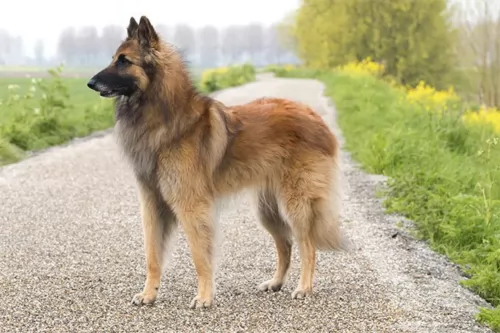 Referred to as the ‘Terv’, this dog from Belguim was created in the late 19th century. He is one of 4 varieties of Belgian Shepherd and he has a long, fawn colored coat. It was in 1892 that the first show for Belgian Shepherds took place and it was the Tervuren variety that won.
Referred to as the ‘Terv’, this dog from Belguim was created in the late 19th century. He is one of 4 varieties of Belgian Shepherd and he has a long, fawn colored coat. It was in 1892 that the first show for Belgian Shepherds took place and it was the Tervuren variety that won.
Breeders of these dogs gave each of the four varieties their own name, and the name Tervuren comes from a Belguim village. This is where M.F. Corbeel bred dogs, believed to be the foundation of the Tervuren breed.
In World War I, many of these dogs were used by the military for war related jobs. Some of these dogs were imported to America for breeding and in 1959 it was considered a separate breed from other Belgian Sheepdogs.
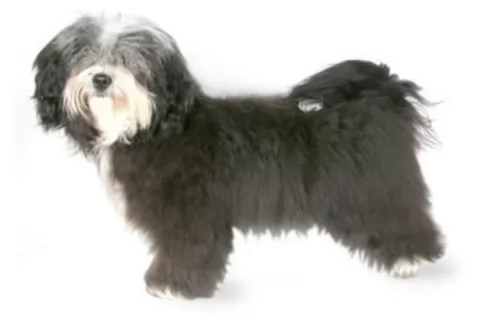 The only breed of dog that is native to Cuba is the Havanese. These little dogs are great companion animals. Sociable and happy, they are very popular in the United States with urbanites. These happy little pups are a Bichon type of dog which was developed from the “Little White Dog of Havana” or the Blanquito de la Habana which is now extinct.
The only breed of dog that is native to Cuba is the Havanese. These little dogs are great companion animals. Sociable and happy, they are very popular in the United States with urbanites. These happy little pups are a Bichon type of dog which was developed from the “Little White Dog of Havana” or the Blanquito de la Habana which is now extinct.
The Blanquito de la Habana was itself developed from another extinct breed the Bichon Tenerife. Then the Blanquito was bred with the other Bichons and poodles in developing the Havanese. It is believed that some of the first people to settle in Cuba were from Tenerife, an island close to Cuba. In the early part of the sixteenth century, little white dogs were brought to Cuba with these settlers. This dog of Tenerife is believed to be the ancestor of all Bichon breeds.
At that time trade with Cuba was highly restricted by the Spanish and so these dogs developed without any crossing from other breeds from outside the country. They grew to be able to stand hot temperatures and they grew a very unique coat – almost like silk. Their coat is soft and light, while insulating them from the tropical environment.
At this time Cuba was the place to be for Europeans aristocrats on vacation. Unlike the British colonies, Cuba had theatres, operas and palacious. When going back to Europe, many took this little white dog with them to France, Spain and England. The Dog of Havannah was a favorite on European soil as well. Many of these dogs taken to Europe were fawn or parti instead of white. Meanwhile back in Cuba, the bourgeoisie were replacing the aristocracy who themselves would soon be replaced by the Revolution.
During the days of the bourgeoisie, the Havanese became very popular household pets. The breed has been a family pet for the last 150 years. At the same time the breed was very trendy in Europe with Charles Dickens and Queen Victoria owning several. They were by now familiar participants in Europe’s dog shows. Finally, with the Revolution, the bourgeoisie left the country in droves with their little white dogs. A genetic pool was then formed in the US. Gene pool from 11 dogs. All the Havanese in the world are descended from those 11 dogs with the exception of the dogs isolated in Cuba and the US. Today the Havanese is one of the most popular and fastest growing breeds in the world.
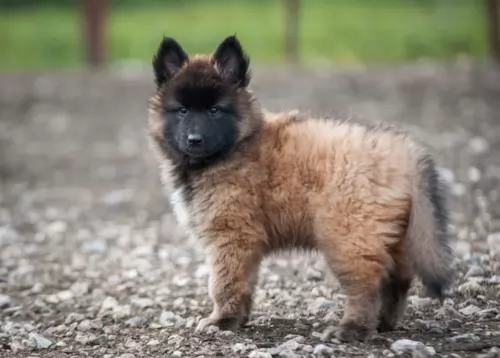 The Tervuren is a medium to large sized, well muscled dog achieving heights of up to 66cm. He has an attractively elegant, regal look to him. The dog has a double coat which is weather resistant. The overall length of the coat which is fawn to mahogany is medium to long and the outer coat is straight with black tips. The males have almost like a mane of hair around the neck that you won’t necessarily find with the females. The tail is long and feathery
The Tervuren is a medium to large sized, well muscled dog achieving heights of up to 66cm. He has an attractively elegant, regal look to him. The dog has a double coat which is weather resistant. The overall length of the coat which is fawn to mahogany is medium to long and the outer coat is straight with black tips. The males have almost like a mane of hair around the neck that you won’t necessarily find with the females. The tail is long and feathery
The Belgian Tervuren is alert and intelligent. His has a long-shaped face with a black mask and upright ears that are sharp and receptive to every sound. He is a herding dog and is full of energy – used to having a job that keeps him busy.
If you don’t want your Tervurens to become destruction, you will need to keep him busy and not just keep him cooped up in the back yard. This particular dog breed is a devoted, loyal pet and forms a strong bond with his human family. However, he will need to be trained and socialized if you want him to behave well around children and pets in the home.
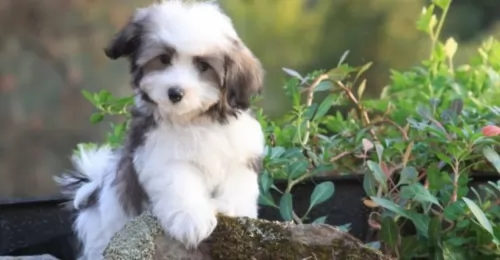 The Havanese is a sturdy little dog, a member of the toy group. They weigh no more than 16 pounds (7.3kg) and his body is longer than it is tall. The breed has a unique topline that is not level, but it is straight. His front legs are longer than his hind legs producing the lively gait everyone is used to seeing with a Havanese. With a full muzzle that tapers to the nose, the Havanese does not seem to be short. The skull’s length is the same as the muzzle’s. The head of the Havanese is round in the back and flat in the front.
The Havanese is a sturdy little dog, a member of the toy group. They weigh no more than 16 pounds (7.3kg) and his body is longer than it is tall. The breed has a unique topline that is not level, but it is straight. His front legs are longer than his hind legs producing the lively gait everyone is used to seeing with a Havanese. With a full muzzle that tapers to the nose, the Havanese does not seem to be short. The skull’s length is the same as the muzzle’s. The head of the Havanese is round in the back and flat in the front.
They have a deep chest, almond shaped eyes that are dark brown and their ears are about halfway down the nose. The long ears hang down the side od the face. They have a long plumed tail that is held high and upward. The standard for the breed and now the laws of the United Kingdom state that there can be no docking of the tail.
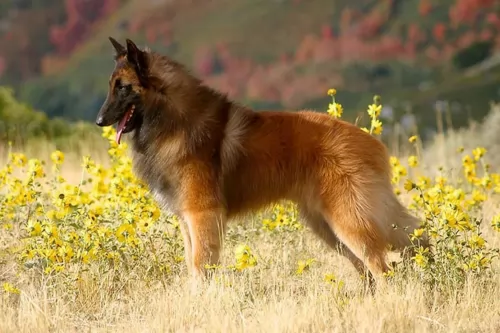 With his beautiful face and lustrous coat, this is a pet that you’re always going to be proud of. Not only that, he is active too, a great watchdog and a fantastic family companion.
With his beautiful face and lustrous coat, this is a pet that you’re always going to be proud of. Not only that, he is active too, a great watchdog and a fantastic family companion.
To keep your Tervuren spritely and contented, ensure he has a high quality diet designed for active herding dogs. He is intelligent too and training and socialization will turn him into an exceptional pet for you. Provide him with lots of human companionship, give him nutritious food and see that any ailments he has are attended to by the vet and you’ll have your attractive pet around with you for up to 12, 13, 14 or 15 years.
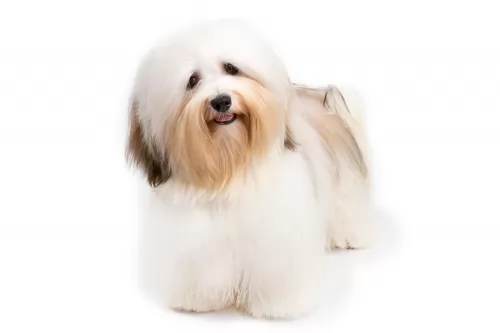 Havanese are highly intelligent and eager to please, and they are easily trained so long as you use only positive methods. This can be a sensitive breed, so care must be taken to not scold them harshly. Socialization from an early age is very important. Expose them calmly to a wide variety of new places and new people, always ensuring that the experiences are positive and not intimidating. Gentle, patient training will result in a wonderful companion dog. They are affectionate with people and get along with other nonaggressive pets.
Havanese are highly intelligent and eager to please, and they are easily trained so long as you use only positive methods. This can be a sensitive breed, so care must be taken to not scold them harshly. Socialization from an early age is very important. Expose them calmly to a wide variety of new places and new people, always ensuring that the experiences are positive and not intimidating. Gentle, patient training will result in a wonderful companion dog. They are affectionate with people and get along with other nonaggressive pets.
The Havanese is the consummate lap dog. Over time they have become the lovable family companion.
The breed is pretty adaptable being able to live as a companion animal in almost any setting. Just don’t expect your Havanese to go hiking or romp with you on 40 acres in the country.
They are intelligent, love to learn but can be a little stubborn. Train them early as they like their habits and its much harder to train an older Havanese.
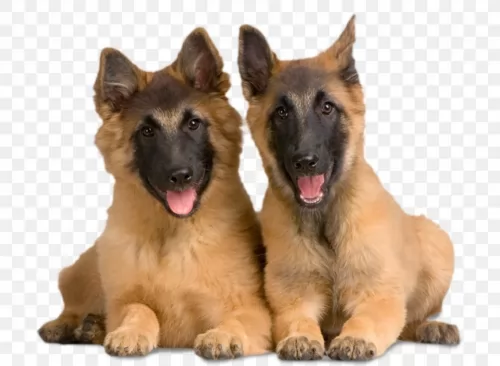 Your Tervuren is a robust, healthy dog breed and with the right food, love and attention, you’re not going to have major health concerns with him. Skin allergies, eye problems and hip dysplasia might be something you want to be aware of.
Your Tervuren is a robust, healthy dog breed and with the right food, love and attention, you’re not going to have major health concerns with him. Skin allergies, eye problems and hip dysplasia might be something you want to be aware of.
A dry, itchy skin with incessant scratching from your pet might require a visit to the vet. If left untreated, an itchy skin and a scratching dog can lead to secondary skin infections and even hair loss. Check for allergies or fleas, and remember that apart from medical management of fleas and ticks, dogs with a dull coat will require a supplement with omega 3 fatty acids.
A common skeletal disorder with malformation of the hip brought on by environmental- and genetic factors. Recognizing the signs of hip dysplasia is important for your dog to help him with pain.
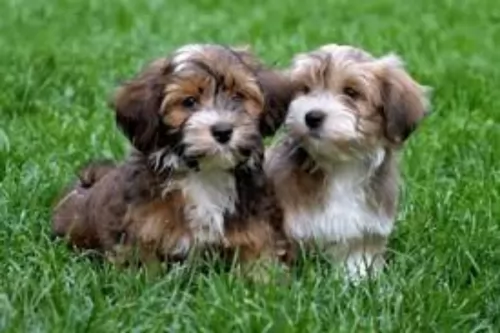 A very healthy breed, the Havanese doesn’t have a lot of health issues, but they are not immune to the problems of small breed dogs. The issues they do have are:
A very healthy breed, the Havanese doesn’t have a lot of health issues, but they are not immune to the problems of small breed dogs. The issues they do have are:
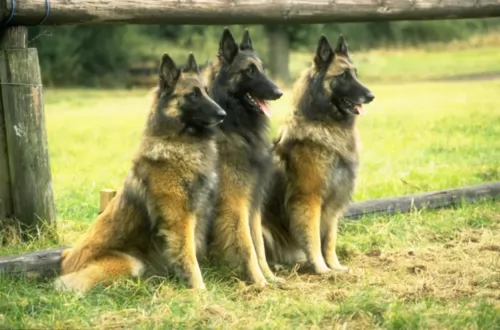 Your Terv is a double-coated dog and he will shed his hair throughout the year. Brushing him at least twice in the week will be necessary to get rid of the hair he sheds. Apart from brushing him and keeping his beautiful coat shiny and healthy, other grooming needs will include clipping his nails and dental hygiene. Brushing his teeth 2 or 3 times a week with specialized dog toothpaste and toothbrush will help with keeping plaque and bacteria at bay.
Your Terv is a double-coated dog and he will shed his hair throughout the year. Brushing him at least twice in the week will be necessary to get rid of the hair he sheds. Apart from brushing him and keeping his beautiful coat shiny and healthy, other grooming needs will include clipping his nails and dental hygiene. Brushing his teeth 2 or 3 times a week with specialized dog toothpaste and toothbrush will help with keeping plaque and bacteria at bay.
Speak to your vet about feeding your Tervuren puppy as he will need at least 4 bowls of food while he is so tiny. By the time he is a year old, he will be able to have 1 or 2 meals a day. Always make sure you feel him high quality food which can be home-made food or commercially manufactured food.
To ensure he doesn’t suffer with any skin allergies, he will need to have some raw meat mixed into his food from time to time. Always provide fresh water for him and make sure to wash the bowls out often.
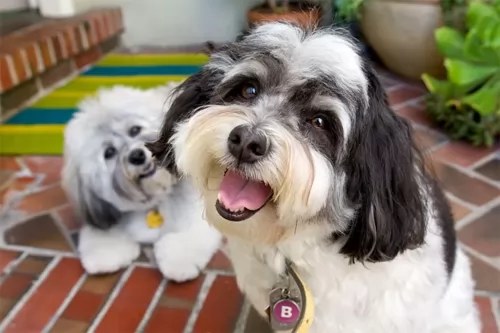 Feed 3 to 4 times per day a high quality dry puppy food for toy or small dogs. Feed ¼ to ½ cup each time.
Feed 3 to 4 times per day a high quality dry puppy food for toy or small dogs. Feed ¼ to ½ cup each time.
Remember these are small dogs and don’t overfeed. Feed a high quality dry food for small or toy dogs. Feed twice a day at about ½ cup each time.
The breed is generally very healthy.
This breed is not an overly active dog, but he does need some exercise. A nice walk once a day or a backyard to play in. They play inside as well as out. Don’t over exercise the Havanese. They do well in obedience and confirmation more so than agility or fly ball